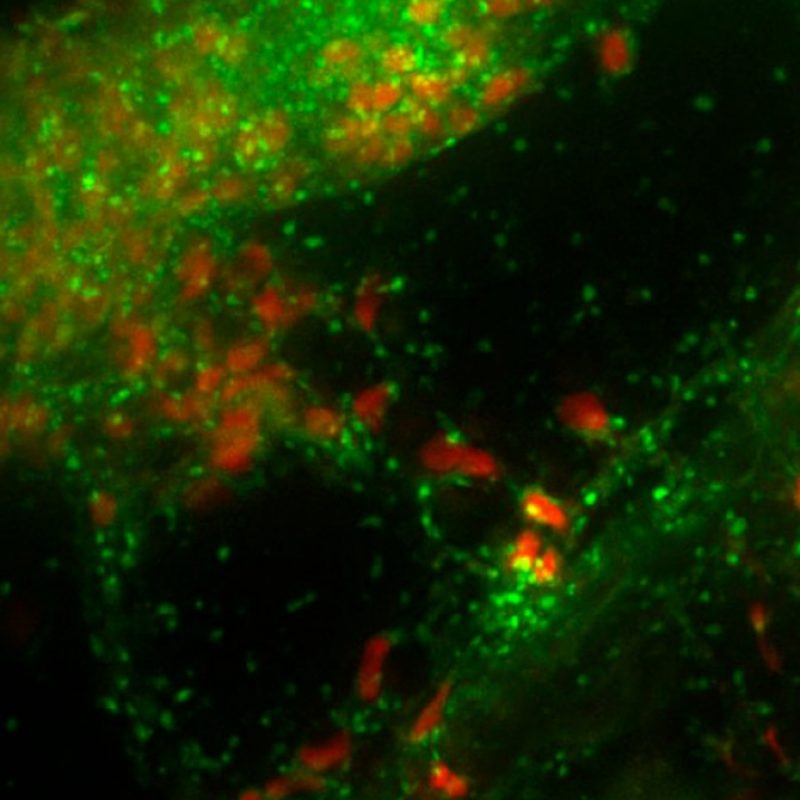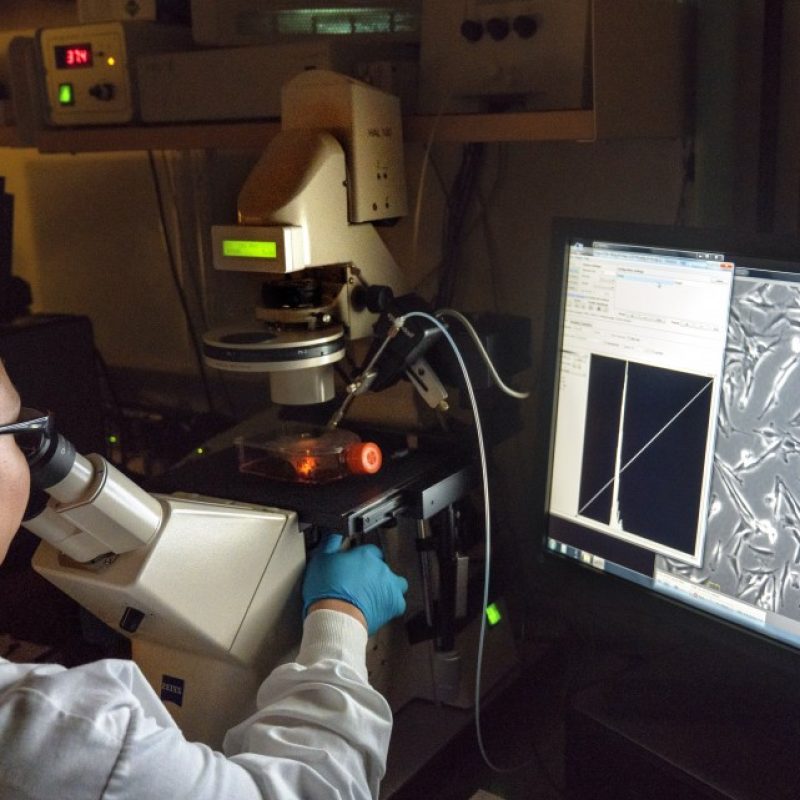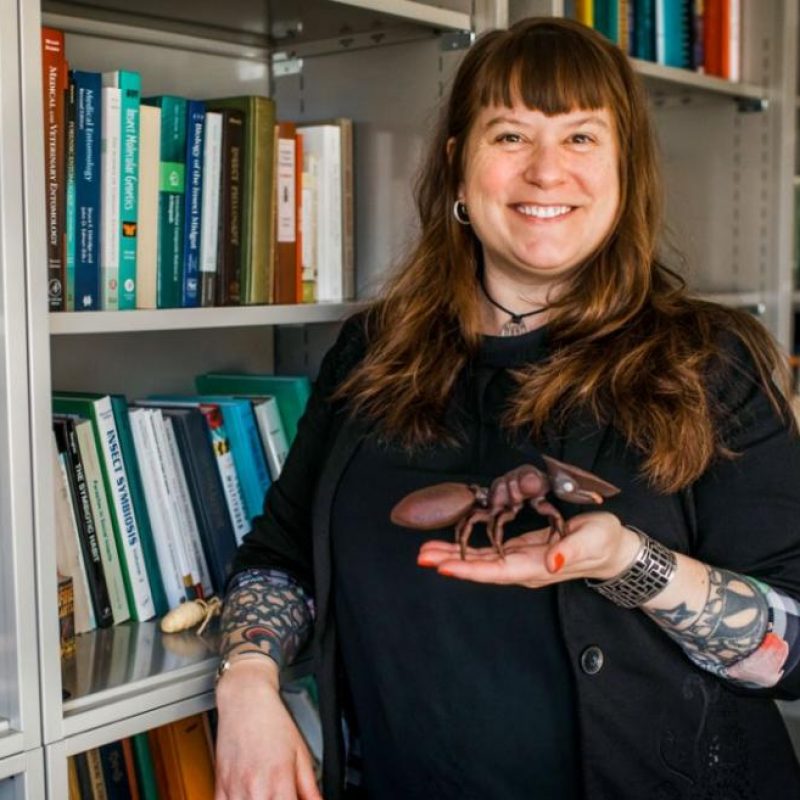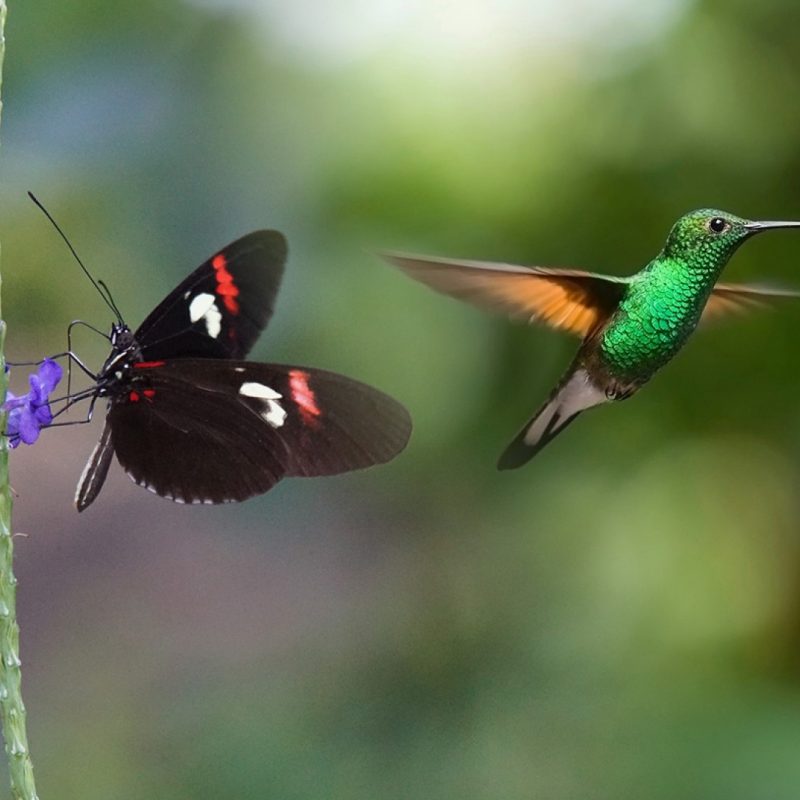Tag: Animal Hosts
-

Gerlinde Van de Walle
With a dual focus on viral pathogenesis and stem cell biology, the objective of Dr. Gerlinde Van de Walle’s research is to open up new avenues towards therapeutic intervention by better understanding the pathogenesis of diseases important to veterinary and human medicine. To this end,[...] -

URE Program now accepting applications
Now accepting applications to CIHMID’s Undergraduate Research Experience (URE) Program for current Cornell undergrads. Find more info here. Applications are due Nov 8, 2024.
-

Megan Greischar lab
Parasite life history strategies within the host, especially the timing of replication and transmission, influence disease severity and spread. I study how subtle differences in ecology within and outside the host can generate dramatic differences in parasite strategies. My research program uses two major approaches: Building ecologically-detailed models to ask when and why particular strategies […]
-

Tobias Dörr lab
My group studies cell envelope stress responses of Gram-negative pathogens. We are defining regulatory pathways and functional networks of enzymes involved in cell wall degradation, modification and synthesis as well as factors required for upholding outer membrane barrier function. We seek to understand these processes to gain insight into the mechanistic underpinnings of cell growth […]
-

Hector Aguilar-Carreno lab
The main focus of our research program is to elucidate key mechanistic components in enveloped viruses and their host cells that: 1) mediate viral entry into cells, 2) elicit cell immune responses, and 3) mediate viral egress from cells. These studies are leading to the development of diagnostic tools, new techniques, antiviral agents, and vaccines. […]
-

Whittaker lab: Coronaviruses and Musteloidea
The Whittaker lab’s paper out in mBio that looks deeper into coronaviruses and their relationship to the superfamily Musteloidea. PAPER: https://mbio.asm.org/content/12/1/e02873-20
-

Corrie Moreau: Sharing 7 million insects with the digital world
Prof. Corrie Moreau talks about digitizing the Cornell University Insect Collection. The full article appears below. CALS ARTICLE By Krishna Ramanujan As director and head curator of the Cornell University Insect Collection, Corrie Moreau has numerous tasks on her to-do list, including one that could last her entire career: digitizing the collection’s 7 million specimens. Digitization is a […]
-

Helmann lab: new elongasome function paper
The John Helmann lab has a new paper out, “A regulatory pathway that selectively up-regulates elongasome function in the absence of class A PBPs” in eLife. LINK TO PAPER: https://pubmed.ncbi.nlm.nih.gov/32897856/
-

Ellner develops new tool for modeling
Prof. Stephen Ellner is developing new statistical tools for ecological modeling with Associate Professor Giles Hooker through a project supported by the NSF, as described in this Cornell Research article from last summer. LINK: https://research.cornell.edu/research/new-statistical-tools-ecological-modeling
-

Evolution of RNA Viruses
Fast evolving RNA viruses, such as rotavirus, influenza virus, human immunodeficiency virus, and zika virus, are a leading cause of death worldwide and represent a major challenge for global disease control. Despite their small genome size, often comprised of only a few thousand nucleotides and a handful of genes, it remains exceedingly difficult to study […]
